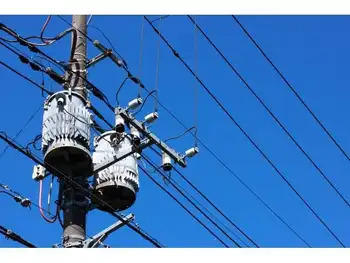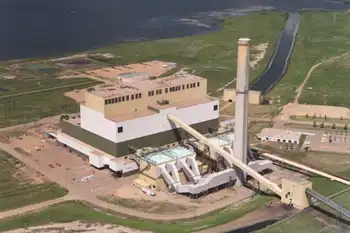Connecticut Regulators Reject Fuel Cell Power Proposal
- State regulators Thursday rejected a proposal to spend $124 million to build "fuel cell farms" featuring power plants built at a Torrington manufacturing facility.
The Department of Public Utility Control, in a 44-page draft, turned down the proposal by Enron North America Corp. and the Connecticut Resources Recovery Agency to use money from a surcharge on electric customers' bills to fund the plan. The proposal called for buying 12 fuel cell units built in Torrington by Danbury-based FuelCell Energy Inc. and installing them at one or more CRRA facilities.
The commissioners issued the decision as part of a larger review of Connecticut Light & Power Co.'s and United Illuminating Co.'s 2001 Conservation and Load Management Plan. They plan to issue a final decision next week.
"At present, neither the cost nor the success of this project is certain," the commission wrote. "Enron testified that it does not want to risk shareholders' money in this venture. It would put the risk on ratepayers without reasonable guarantees from either the manufacturer or the project developer."
Though commissioners agreed fuel cells are an efficient, environmentally friendly way to produce electricity, they said the CRRA plan put too much risk on electric ratepayers. Fuel cells run off traditional fuels like natural gas, methanol or ethanol and operate like large batteries to produce electricity, but they run more efficiently, without combustion and with lower emissions.
Enron and the Hartford-based CRRA, which operates a trash-to-energy facility in Hartford's South Meadows and other facilities, wanted to buy fuel cell units capable of generating 26 megawatts, enough electricity to power 13,000 homes. It would then group them into farms, power them with landfill gas and sell the energy on the open market.
"However, landfill gas is dirty and the department believes that it will take years before the technology is available at a reasonable costs," the DPUC wrote. "Present high costs would add to the cost of electricity from those cells."
Commissioners also said the project's nature of "generation," rather than "conservation," was another factor in the denial. They found the project should have been presented to the Energy Conservation Management Board, which is responsible for evaluating projects that may use load management funds, and noted the project should instead seek funding from the Renewable Energy Investment Fund.
The setback comes as FuelCell Energy continues to invest heavily in commercializing its technology with hopes of introducing its first units to the market this year. The company already has units up and running at several sites, and last month, it received a $1.25 million state contract to build a 250-kilowatt fuel cell unit that will be installed next year at a University of Connecticut campus, most likely in Storrs.
"Fuel Cell projects like the one proposed can meet the requirements for clean, efficient and reliable electric power," said Jerry D. Leitman, FuelCell's president and CEO. "We will continue to aggressively pursue this or similar projects in Connecticut and throughout the U.S., Asia and Europe."
Related News

Nearly $1 Trillion in Investments Estimated by 2030 as Power Sector Transitions to a More Decarbonized and Flexible System
SANTA CLARA - Frost & Sullivan's recent analysis, Growth Opportunities in Distributed Energy, Forecast to 2030, finds that the rate of annual investment in distributed energy resources (DER) will increase by 75% by 2030, with the market set for a decade of high growth. Favorable regulations, declining project and technology costs, and high electricity and demand charges are key factors driving investments in DER across the globe. The COVID-19 pandemic will reduce investment levels in the short term, but the market will recover. Throughout the decade, $846 billion will be invested in DER, supported by a further $285 billion that…




